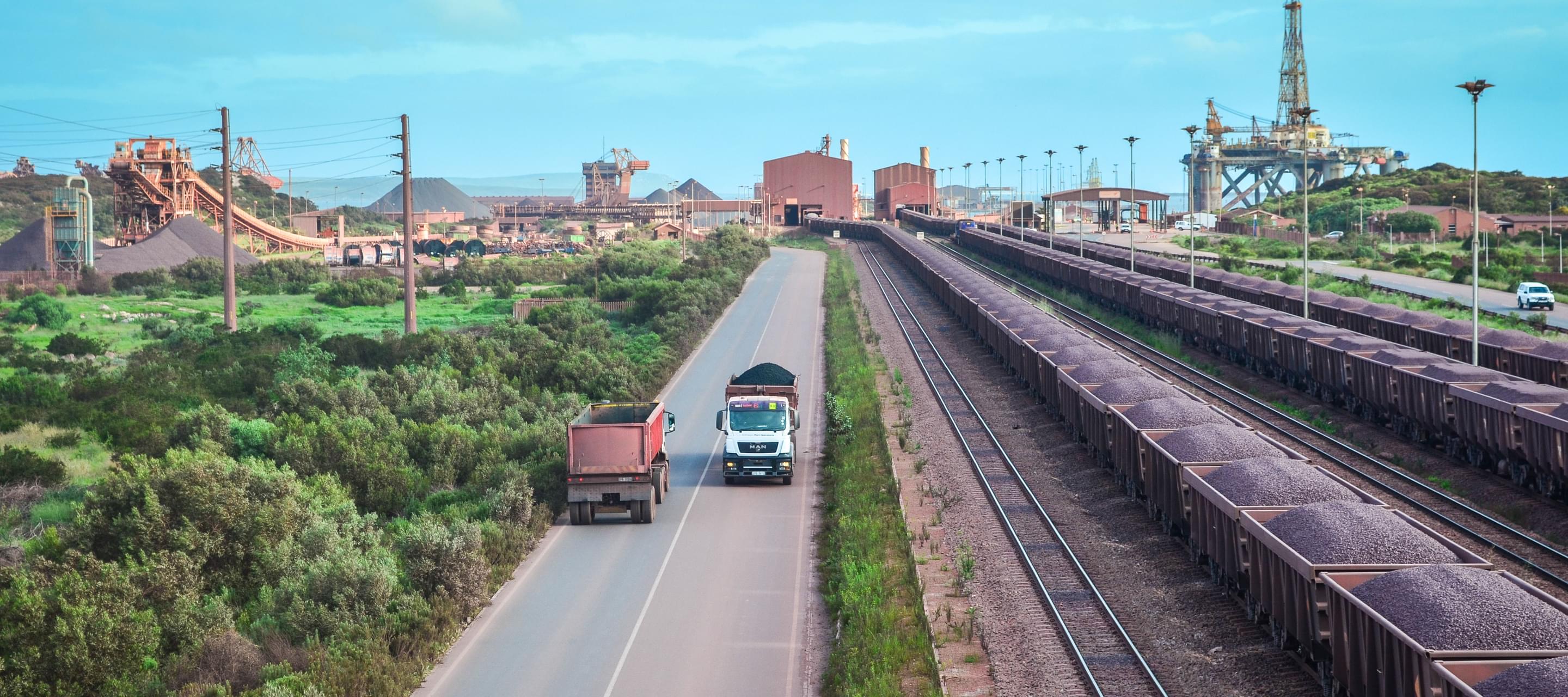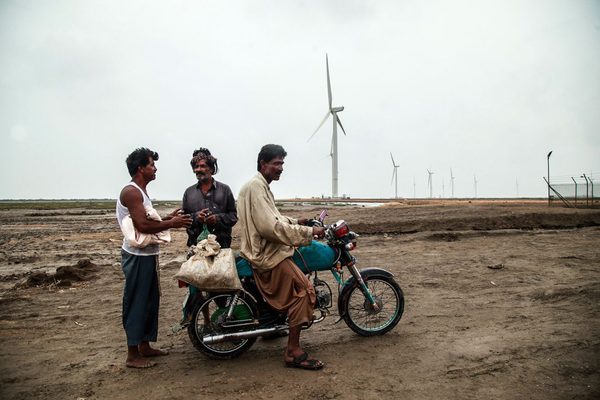What are JETPs? (Just Energy Transition Partnerships)
6 November 2024

Just Energy Transition Partnerships (JETPs) are multilateral platforms between developed and emerging economies designed to deliver climate finance that supports developing countries to accelerate the transition to an equitable and socially inclusive low-carbon economy.
Under the UN Climate Change Convention (UNFCCC), member states have collectively adopted the overarching goal of limiting global warming to maximum 2°C, while striving for a 1.5°C target - outlined in the Paris Agreement. As part of this commitment, countries submit nationally determined contributions (NDCs)— plans detailing how each country will contribute to meeting the Paris Agreement while ensuring equity and inclusion. Some NDCs include details on the costs of climate mitigation and adaptation efforts, specifying whether these will come from international sources of finance or domestic sources.
Just Energy Transition Partnerships (JETPs) are increasingly seen as a scalable solution to support and encourage developing countries to meet and exceed their NDC commitments.
Climate Justice and JETPs
At the heart of JETPs is climate justice. Climate justice demands collective action to ensure that the burden of climate change is shared equitably, regardless of a nation’s economic status or historic context. Developed nations historically emitted more greenhouse gases and carry a significant responsibility to address climate change. Despite contributing the least to global emissions, developing nations are disproportionately impacted by climate change. Colonial legacies, national debt, and other historical factors perpetuate this climate injustice.
How do JETPs work?
Developed countries provide funding and technical assistance to developing and emerging economies to help accelerate decarbonisation efforts. The funding is provided through a mix of public and private grants, concessional loans, commercial debt and equity investments. However, most JETP countries have highlighted limitations with this funding mix, particularly the lack granting funding needed to effectively deliver just outcomes without increasing.
This funding commitment is part of a target set in 2009 by developed nations to mobilise $100 billion per year by 2020, aimed at helping developing countries reduce their greenhouse gas emissions. Although countries failed to meet this annual target, they agreed in 2015 to extend the goal through to 2025 (A new target, the New Collective Quantified Goal (NCQG), will be negotiated at COP29 to further support developing countries in their decarbonisation efforts post-2025).
At COP26 in 2021, several countries increased their commitments and the first-ever JETP was established for South Africa. South Africa and its “International Partners Group” (IPG) (France, Germany, United Kingdom, United States and the European Union) committed to mobilising USD 8.5 billion to accelerate South Africa’s decarbonisation. Subsequent partnerships were formed for Indonesia and Vietnam in 2022, committing USD 20 billion and USD 15 billion respectively. In 2023, a fourth JETP was announced for Senegal worth USD 2.7 billion. Several more potential JETPs are reportedly under negotiation.
As JETPs are a response to how climate finance can be delivered in a way that supports local just transitions while advancing international climate goals, they are continually evolving as a model – from the makeup of International Partner Groups (IPG) to the specificity of the pledges or ‘deals’ made. For example, in the cases of Indonesia and Vietnam, the pledges of concessional capital from the IPG were matched by private sector investment pledges for the first time, coordinated by the Glasgow Financial Alliance for Net Zero (GFANZ). While the initial focus of the JETP model was on the transition away from a coal-based economy, the Senegal agreement placed greater emphasis on improving clean energy access and addressing energy poverty. Variations of these models are expected as more JETPs deals are established.
JETPs are deemed as ‘new models with potential to serve as accountability mechanisms in states' efforts towards decarbonisation.’ However, as highlighted above, countries have consistently fallen short in meeting their annual climate finance commitments. Although these partnerships are innovative and catalytic, several challenges raise questions on their effectiveness as ‘genuine’ accountability mechanisms. For example, the slow pace of fund deployment, the insufficient grant funding, and inadequate funds earmarked for ‘just’ aspects.
How are JETPs progressing?
Since the establishment of the JETPs, there’s been progress in ‘operationalising’ the JETPs - this entails setting up governance structures, developing investment and implementation plans. However, efforts to expedite the flows of funds to ensure the realisation of just transition outcomes has been slow. Progress on each of the JETP countries is outlined below.
South Africa’s JETP
- Development of a Just Energy Transition (JET) Investment Plan: In 2023, the Presidential Climate Commission released the JET Investment Plan which outlines a vision & investment strategy for the first five years for how the country will balance energy security, economic growth & decarbonisation while aligning its defined just transition principles. The country’s investment plan estimates a financing target of approximately USD 98.7 billion between 2013 – 2027 to support its goals of energy security, just transition, and economic growth. The funding and investment targets three priority sectors - electricity, New Energy Vehicle, Green hydrogen and two cross cutting priorities for skill development and municipal capacity, which includes just transition interventions.
- Development of an implementation Plan: In November 2023, the PCC released the JET Implementation plan which outlines the operational priorities for directing the early capital flows in the JET Investment Plan.
- Ongoing negotiations to catalyse investments: South Africa is in talks to secure further investments to unlock the full potential of the JETP funding. The initial amount mobilised has increased from USD 8.5 billion to USD 11 billion, with additional countries joining namely, Denmark and Netherlands.
Indonesia’s JETP
- Establishment of the JETP Secretariat: The Government of Indonesia set up a JETP Secretariat to oversee the implementation and operationalisation of the partnership. The secretariat supported independent working groups focusing on technical, policies, financing and Just Transition aspects. A fifth working group focused on energy efficiency and electrification is envisioned.
- Development of a Comprehensive Investment and Policy Plan: Indonesia and the members of the IPG and Glasgow Financial Alliance for Net Zero (GFANZ) developed an investment and policy plan that outlines the JETP priorities and strategies for transitioning to cleaner forms of energy. The plan is intended to be a ‘living document’ that will be regularly updated and evaluated. The investment plan estimates a financing target of approximately USD 97.3 billion between 2023 – 2030 and targets grid deployment and transmission lines, early retirement of coal fired power plants, renewable energy generation and just transition assessment interventions to support workers and communities who are affected by the transition.
Vietnam’s JETP
- Establishment of the JETP Secretariat: The Government of Vietnam set up a JETP Secretariat to oversee the implementation and operationalisation of the partnership.
- Development of a Resource Mobilisation Plan: Vietnam has developed a Resource Mobilization Plan to outline the country’s JETP priorities. The plan estimates a financing target of USD 134.7 billion between 2023 – 2030. The funding and investment requirements target improvement of the regulatory framework for the energy transition, transition and early retirement of coal power generation, the development of a renewable energy industry, power transmission and energy storage, energy efficiency and ensuring a just transition.
Senegal’s JETP
- As the most recently established JETP, the Senegal Government is still working on operationalising the JETP by developing an energy strategy that focuses on renewable energy deployment, reducing greenhouse gas emissions and ensuring universal access to affordable electricity.
What do JETPs have to do with human rights?
JETPs are an important first step in incentivising the much larger-scale private investment required for each country’s energy transition, continuously, over the next three decades. However, JETPs are also a new, untested, and so far ad-hoc model with enormous implications for the human rights of local workers, communities, indigenous groups, and consumers.
Depending on their transition contexts, countries embarking on these and other emerging climate finance models will have different approaches and challenges to delivering on their just transition commitments. However, successful models will be defined by a mixture of emission reductions, political settlement accords, and the attendant capacity to deal with a variety of justice claims.
Despite the progress made in several JETP countries, numerous challenges remain, some of which are common across the JETPs, while others are specific to individual countries. There is currently a lack of internal and external coherence in the way various national policy makers across the JETP countries are interpreting the “just” dimensions of their national decarbonisation transitions – reflecting their own local tensions between decarbonisation, energy security, and economic development.
IHRB seeks to fill this gap to delineate how business can effectively advance the justice dimensions of the energy transition, in particular by robustly implementing their responsibility to respect human rights via established international standards, as well as what is needed beyond this to achieve the full suite of justice outcomes outlined in JET policies.
In South Africa policymakers have developed detailed frameworks and plans to transform its energy system. For example: South Africa’s Just Transition Framework (2022) sets out the vision, principles and interventions to give effect to three forms of justice at the centre of South Africa’s transition: procedural justice, distributional justice, and restorative justice.
The principles that guide the just transition in South Africa implicitly built on the country’s Constitution and Bill of Rights, which contain a justiciable set of principles including putting human development concerns at the centre of decision making, producer and polluter responsibility, equitable access to environmental resources, and equipping people to participate in decision making.
More can be done to apply an equally systematic approach to shaping how business participates in constructively advancing, and not undermining, justice-related processes and outcomes.
See report on South Africa’s JET and the business role in shaping ‘just’ outcomes.
More analysis to come on other JETP countries.




